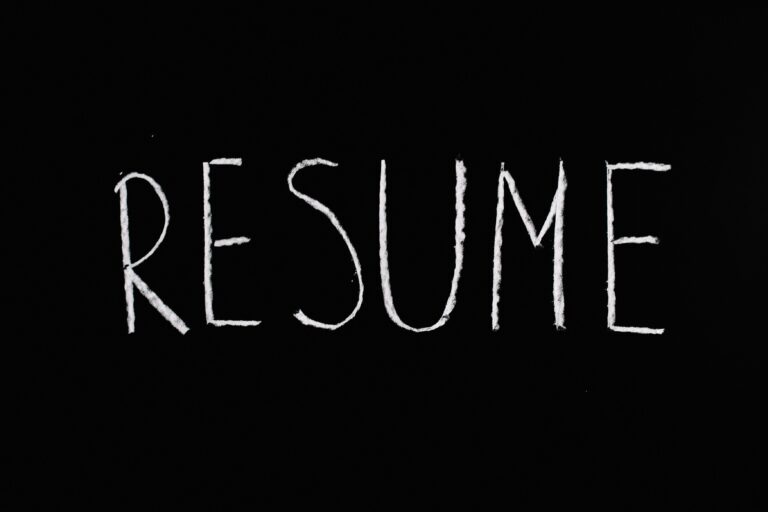How to Meet The Educational Qualifications Mentioned in The Job Advertisements
You’ve finally found your dream job posting. The good news: you’re a perfect fit for the job – you have the skills, experience, and passion to not only fill the role but also become a top performer. The bad news? You don’t meet the training requirements.
Don’t be desperate. “In many cases, work performance trumps education. So if you have great work experience and achievements on your resume, you may be able to overcome the degree requirements,” says Mindy Thomas, Philadelphia-based career coach, and resume writer. It’s often worth applying for a job even if you don’t have the educational credentials.
Whether you should apply for a job depends, of course, on the degree and the type of job. For example, if you don’t have an engineering degree, applying for a job as a robotics technician would probably be a waste of time. But if you don’t have a marketing degree, you might still be able to get a job in advertising.
“You should pay attention to what is listed as minimum requirements and what is listed as preferred requirements,” Thomas says. If a certain degree is preferred, it’s still worth applying for the job as long as you meet the other important requirements.
If you know you have what it takes to do a job well, these steps can help increase your chances in the application and interview process – even if you don’t have that degree.
Highlight your relevant strengths
Even if you’re at a slight disadvantage, to begin with, you can still compete with fully qualified applicants by emphasizing what you have. “Connect your knowledge, skills, competencies, and experience to your job search,” says Dan Ryan, founder of talent acquisition and development firm Ryan Search & Consulting.
Carefully reviewing the tasks described in the job ad can help you determine the keywords that can give your CV a boost. If a job ad is looking for a development associate with experience in major donor acquisition and cultivation, use that exact phrase in your resume.
Also, focus on transferable skills from your work experience. For example, both teachers and salespeople are well versed in giving presentations. Both retail clerks and hotel employees have top-notch customer service skills. Where do your talents overlap with the requirements of the job you are looking for? “As with any job application,” says Amy Wolfgang, managing director of Wolfgang Career Coaching in Austin, Texas, “you need to show how well you fit the role.”
Improve the “education” section of your resume.
If you have a bachelor’s or associate’s degree that has nothing to do with the job posting, you should still list it on your resume under the “Education and Credentials” section.
Don’t have a college degree? You can still showcase your achievements. Create an “Honours and Awards” section on your resume and list any professional certifications, training programs, or other educational credentials you have. Testimonials are another way to enhance your resume. Reach out to former bosses or co-workers (three is a good number) and ask for a one- to the two-sentence endorsement of your skills.
Make contact with someone in the company
A recommendation from someone at the company could get your foot in the door for an interview, says Wolfgang. Start by going through your existing network. If you don’t have a first- or second-degree connection in the company, there are other ways to find an advocate.
“Trade groups or professional associations can help you connect with current employees and build relationships,” says Wolfgang. Informational interviews can also give you the opportunity to make a friend in the company. Once you find an insider, “you can find out from the person how firm the training requirements are for the job,” says Wolfgang.
Be prepared to talk about it during the interview
Even if you don’t want to draw attention to the fact that you don’t have the relevant education, you should be prepared to bring up the subject during the interview. If the interviewer says, “I see you don’t have a bachelor’s degree in communication,” it’s best to reply, “You’re right. I don’t have a bachelor’s degree in communication. But let me tell you what I have that qualifies me for this position.
Be prepared with two or three anecdotes about specific professional achievements that are valuable for this particular position. This could mean explaining how you solved a problem, how you went out of your way to close a sale, or how you saved money on a project.
Put a professional spin on your CV
Just because you don’t have a degree doesn’t mean you’re not a good fit for a job. Now is the time to convince a recruiter. Knowing what your CV should look like is key to catching their attention – especially if you don’t meet all the requirements. Could you use some help with this? Get a free resume evaluation from the experts at FindMyjob’s resume writing service today. You’ll receive detailed feedback within two business days, including a review of your resume’s appearance and content and a prediction of a recruiter’s first impression. This is a quick and easy way to clearly and convincingly demonstrate the value you bring to the job.
Looking to make a career change or start a new job? Try FindMyJob.lk today to find the perfect job you dream of.






